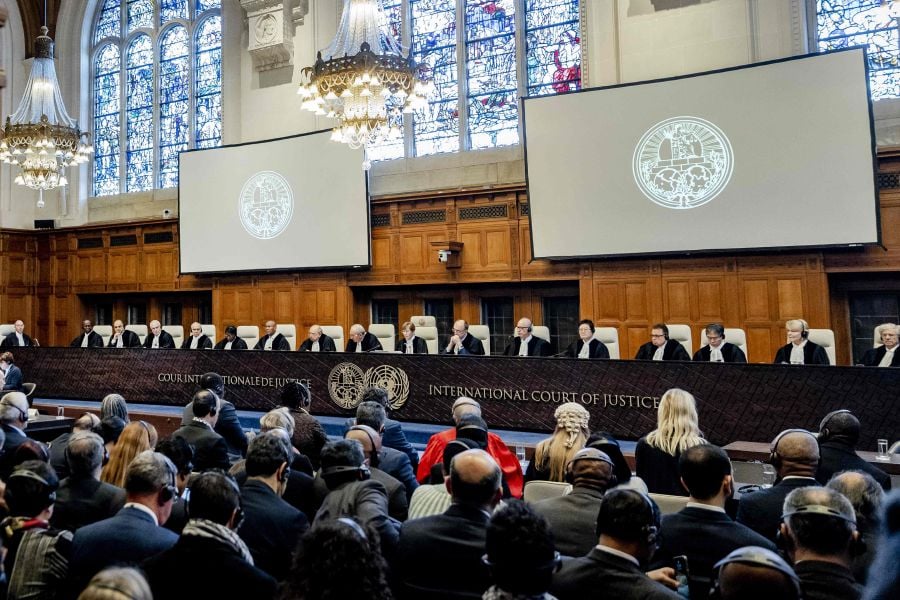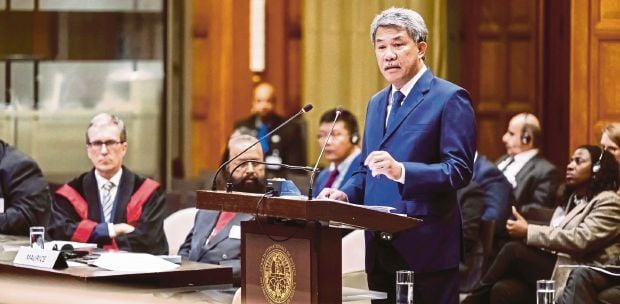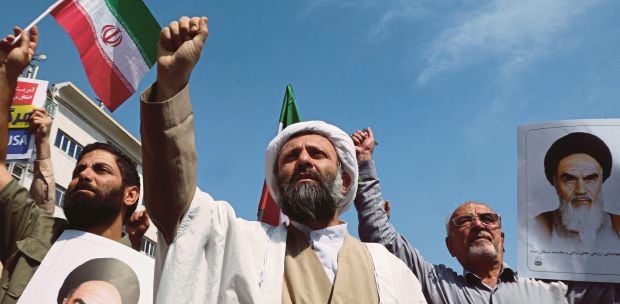IT was less than a month ago on Dec 29 that South Africa filed a case at the International Court of Justice (ICJ) against Israel. After months of emergency meetings, informal negotiations and deliberations, it eventually took a non-member of the Organisation of Islamic Cooperation (OIC) to formally institute proceedings at the world's highest court.
It was not that the OIC lacked the will. There was individual will aplenty. The OIC merely lacked a consensus. A consensus about what could be done.
South Africa's move was no surprise. Last November, a month before going to the ICJ, South Africa filed a referral to the International Criminal Court (ICC) on the situation in Gaza. It was joined by four other member states to the Rome Statute: Bangladesh, Bolivia, Comoros and Djibouti.
Last Friday, disciples of international relations the world over sat transfixed for the better part of an hour listening to the interim judgment of the ICJ.
Even before the decision was read, there was a lot of interest in the outcome. Would the ICJ decide that the question of Israel's impunity was too "hot" to touch and, therefore, decide that it had no jurisdiction over the case? Would the ICJ be deadlocked in its votes, rendering any decision meaningless?
But more than that, there was also this niggling question of whether the ICJ would do what it was best at doing: avoid making a decision altogether.
We have to remember that despite all noble intentions about upholding international law, the judges of the ICJ are still individual and political beings. Candidates for a judge to the ICJ are nominated by the state and voted upon by states in a process that is seemingly based on merit, but is often decided based on other considerations, mostly political.
This is why the ICJ is often seen as a political arena and less of a judicial one. Lawyers the world over know that when you ask the ICJ for a legal opinion, you have to ask it the "right" question. Or else you get nothing.
In 2008, the United Nations General Assembly asked the ICJ a question: "Is the unilateral declaration of independence by the Provisional Institutions of Self-Government of Kosovo in accordance with international law?"
Serbia, which spearheaded the request, was hoping that the ICJ would rule that it was not in accordance with international law, and, therefore, illegal.
Kosovo, which had declared independence, hoped that the ICJ would rule that the declaration was in accordance with international law, and, therefore, the international community would have to recognise Kosovo.
In the end, the ICJ dithered, and ruled that Kosovo's unilateral declaration of independence was not in violation of international law. Instead of answering the question with a "yes" or "no", the court found a loophole that allowed it to avoid making a decision.
To add insult to injury, the ICJ said the issue of recognition was a political matter, not a legal one.
The ICJ's past decisions indicate an unwillingness to be drawn into political quagmires, which the recent case against Israel was. Which was why it was surprising that the ICJ came to a nearly-unanimous decision on Friday.
The good things: the ICJ interim ruling found that it had jurisdiction to determine the case, and thus ordered Israel to take measures to prevent genocide in Gaza, allow humanitarian aid into the territory, take more measures to protect Palestinians and to report back within a month of the order.
The bad things: the ICJ stopped short of ordering an immediate ceasefire, merely saying it was "plausible" that Israeli acts could fall within the ambit of genocide.
As a final verdict on the case may be years away, the ICJ may by then have found another way to not make a decision. The ICJ, as the final arbiter, seems to have been very innovative in ensuring it does not stick its neck out one way or the other.
My question is simple: have the international courts, in their bid to be politically correct, shortchanged the international community by depriving it of the answers they so desperately need and the solutions they so desperately seek?
The writer is a foreign service officer who has served in bilateral and multilateral posts





